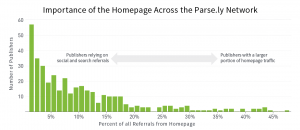— February 8, 2019
Blockchain technology is not limited to Bitcoin: its implementation will upset the organizations of workers. Review of 12 ruptures to prepare today.
Will the blockchain revolutionize the company? Many people think so. For example, Don Tapscott, American economist, co-author of the book “Blockchain Revolution“, believes that it is the most important technological innovation “of all time” because it is the first time that he There is more intermediary to capture the value. He even anticipates the end of the business and the advent of decentralized communities of autonomous agents. If he is right, it will also be a revolution in the organization of work…
What is blockchain?
The collarsearch defines it in the following way: “Technology of storage and transmission of information, transparent, secure, functioning without a central organ of control”. Blockchain is revolutionizing business processes like a way of doing business, Customer interaction, sales, and marketing. Blockchain is also having an impact on the recruitment process as provide data, data privacy, and prevention of fraudulent candidate. Candidates cheekily lie about their credential, employment history which not only leads to wastage of time but considerable money. The blockchain is a vast database that gathers the history of all transactions between those who use it. The exchanges are recorded in near real time, and this database is secure and distributed: it is shared by its different users, without intermediary, which allows everyone to check the validity of the chain. The blockchain has found its first concrete application with virtual currencies.
Beyond its media treatment, focused on Bitcoin, the blockchain will challenge or even eliminate or, in any case, transform, several parts of the current organization of work in companies and, more generally management modes. If we do not know at what rate, we can already identify ten areas in which the blockchain will redistribute the cards more or less long term. Even if the horizon may seem distant, you have to prepare for it now
1 / The disappearance of established companies
It is easy to see that the removal of trusted third parties (banks, insurers, notaries…) allowed by the principles of the blockchain calls into question the traditional order as we know it. It implements a new infrastructure of decentralized control, anonymous, safe, less expensive and more reliable. The trusted thirds of the old world simply have no place anymore!
Probability: 4/10
2 / The transformation of administrative tasks
The blockchain automates many tasks of input, control, validation, registration. This can be seen by some as a threat to employment, especially the less skilled, but for many others, it is a source of enrichment. For the HRD, in particular, the blockchain makes it possible to certify the accuracy of CV, a very time-consuming task and often without guaranteed result …
Probability: 8/10
3 / A boost to telecommuting?
Because of its completely decentralized approach, the blockchain is an accelerating factor of teleworking. The different stakeholders do not really need to be in the same geographical location.
Probability: 7/10
4 / Collaborative priority
If the modes of cooperation have already evolved in companies, the blockchain will add a complementary dimension, since collaboration is precisely its purpose! What challenges the modes of organization of work based on heavy processes and a separation of tasks, inherited from the great hours of Taylorism.
Probability: 9/10
5 / New uses, new jobs?
If the blockchain manages to win, it will spark the emergence of new players, multiple start-ups, even more, or less official regulatory bodies. Which modes of organization, much more agile, will decide with the existing one.
Probability: 9/10
6 / A plebiscite for transparency
As we know, traditional modes of organization generate in companies a lot of unspoken, rumors, imperfect information, even fraud, all of which are not sanctioned. The blockchain, which relies on the transparency of all transactions, will it collide with the historical practices of many companies? We can reasonably assume.
Probability: 6/10
7 / A loss of meaning (and power) for middle management
The different management layers of companies and public organizations are inherited from the history and requirements of control. This has resulted in pyramidal hierarchical structures, where the notion of collaboration often remains at the level of discourse. The blockchain helps to reverse this rigid model, with a flattening of hierarchies and a “nerd” meeting to control who does what, against a mechanism to become fully automated.
Probability: 5/10
8 / New skills needed
Like any new technology, future blockchain users need to learn new skills, either on their own or through training devices. They concern both hard skills – mastering technology and making it a reality on a day-to-day basis – and soft skills, as the collaborative becomes a standard organization of work.
Probability: 9/10
9 / An impact on productivity
In theory, collaborators who perform less time-consuming tasks are more productive (because they do something else that creates more value). Unless they have more free time, equal production. This will be the dilemma of the HRDs and the managers: how to occupy the liberated time and reorganize the work in the coherence … and without social conflicts.
Probability: 8/10
10 / Automation that feeds itself
Current debates on artificial intelligence show that its field of application is virtually limitless. There is no doubt that the blockchain, which combines learning and automation, like artificial intelligence, will be an oil patch. It will always find new applications, with consequences on the level of employment, its intensity and the structure of the tasks.
Probability: 6/10
11 / Changed modes of governance
The blockchain rebates the cards of responsibilities: the trusted third parties see their powers erode or even evaporate, while other stakeholders control their often-strategic transactions. For businesses, it is also the mode of governance that is to be reviewed. When we do not know who governs, we suspect that the classical principles are abused.
Probability: 4/10
12 / Evaluation methods to be redefined
Transparency and collaboration do not fit well with employee evaluation methods, most of which are based on the criteria of the last century. The start-up feedback, a blockchain-based collaborative platform publisher, explains the change: ” With a leaderless network organization, each collaborator can create and join projects in the system, and submit contributions. The work of each is evaluated by his peers: the score of “reputation” hooked î t the scoring power over others. The device can also manage compensation on these bases. So much to say a revolution.
Probability: 6/10
Hope you like my article. For any suggestions and feedback, leave a comment below in comment section.
Business & Finance Articles on Business 2 Community
(45)
Report Post





